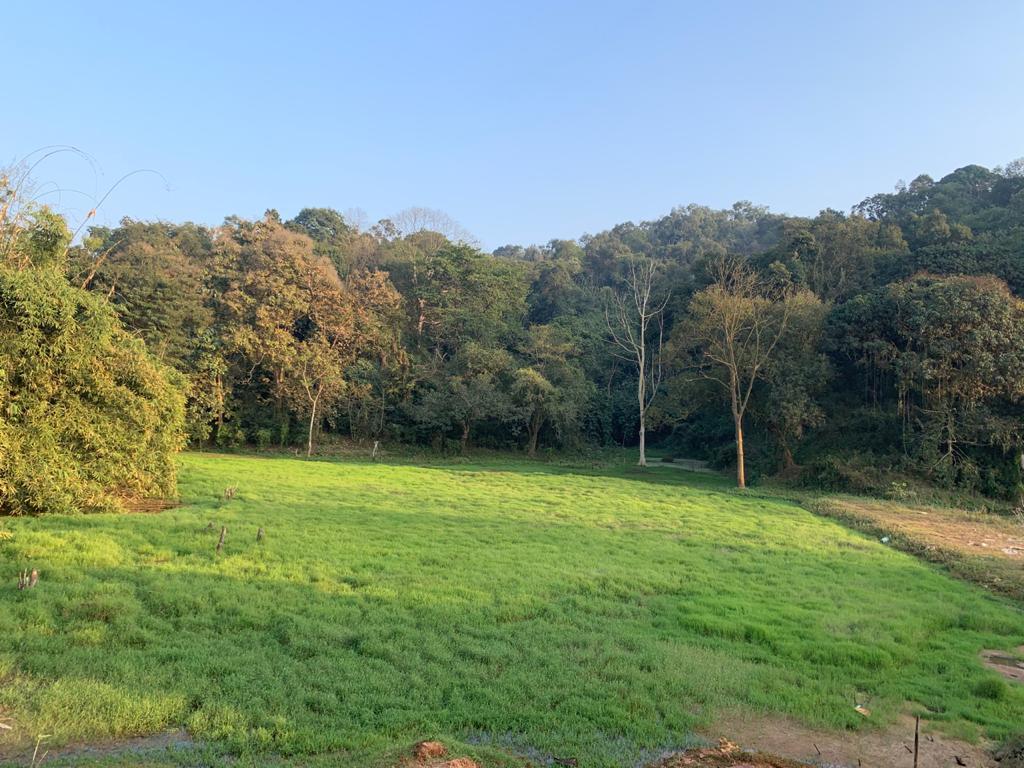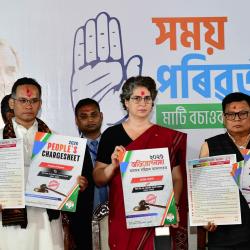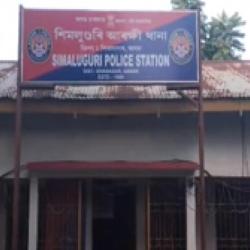We have been residents of Guwahati a city in the making. Its a city of rivers, drains and hilly streams all woven together in a fascinating ecology of hill and valley. Our locality receives annual flash floods during the monsoon months of May till September and remains dry during the other months of the year. We live with respected elite citizens with academic, business, bureaucratic, political, social and cultural affiliations. Our house happens to be a centre of many things like trees, flowers, birds, cats, snails, earthworms, vegetables, grasses of diverse varieties and also water supply lines, floods and three electricity lines which connects the neighbours electricity supply too. We are a family of 7 adults and 1 child. 2 adults are above 70 years with restricted mobility.
We had a lot of hope from the drainage work near our locality. Every monsoon we suffer for flashfloods and the water from the byelane fills up our compound. We put bricks and wooden planks to commute during those days of heavy floods. This is due to the drains which gets clogged and spills out its dirt into the flood waters as well. This is the apathy of most ground floor homes in Guwahati plain areas where flood waters creates havoc. So our locality decided to apply to Guwahati Municipal Corporation to resolve the problem and reconstruct the drains. The residents' welfare associations, women's bodies and prominent residents of the byelane took the initiative to repair the drains. It was a long haul process of breaking the existing open drains and putting out the garbage stuck in the drains and then reconstructing the drains with both machines and human hands. This process has been going on for last 3 months now. It was a job worth Rs. 2.5 crores. It was given to external contractors by the GMC for smooth execution of the task. We saw huge JCB trucks, mechanical stone and concrete crushing tools, power generating tractors and a fleet of skilled workers to do the framing, masonary, digging, driving and cleaning work.
During this period the residents faced huge problems of mobility and shortage of water and electricity which remains a matter of worry. Elderly people, children, women, domestic workers, homebased entrepreneurs were hugely affected. People with home bound ailing patients, online class students and teachers, home based business owners with guestrooms and product sales were drastically affected. All these people had somehow tried to rebuild their lives after the lockdown period only to be re-confined or temporarily displaced from the homes in our byelane. Drainage repair and reconstruction was a great initiative but it came with a huge cost of health, economic and ecological factors.
During the lockdown phase we had natural herbs and plants from our home garden which ensured our immunity and disease resistance capacity to a large extent. But while constructing the drainage, the thick layers of concrete dust and fumes from the tractor and mechanical tools led to the collapse of these immunity herbs and trees. The drainage reconstruction process took minimum 15 to 20 days to get the required structure in front of every household. The digging conditions disrupted mobility of people from inside to outside the house and even vice versa especially those having home based businesses. Cutting of electricity lines during the construction work affected home based online teaching learning, online office work as well apart from electricity bound home based chores. These affected women within the domestic space drastically.
Its an irony that drainage construction requires such elaborate mechanical tools and noise polluting tools in today's era of high tech innovation where people's basic needs like water and electricity had to be curtailed. The flowers, trees, plants and herbs were the silent sufferers in this work. Normally by this time of the year they start blooming well but because of the dust, fumes and terrible working conditions these plants died. The xewali tree, bhedailota creepers and other trees suffered the most but who will compensate them with their natural habitat again. Infrastructure development affects natural ecology majorly but we do not think that its essential to do anything regarding this. Our home garden was a natural habitat to sparrows, pigeons, robins, bulbuls, crows and many other seasonal birds, butterflies, bees and insects but who cares for those. The noise of the machines became music to many ears. Hope that this sacrifice of our trees and plants will keep the drains clean, unclogged and safe for future.
- 11325 reads










Add new comment